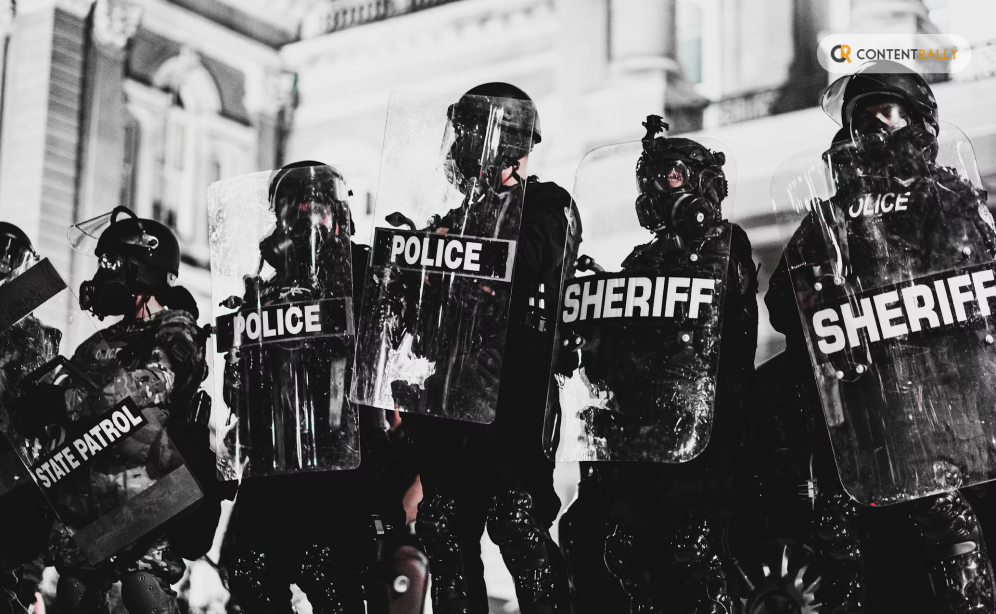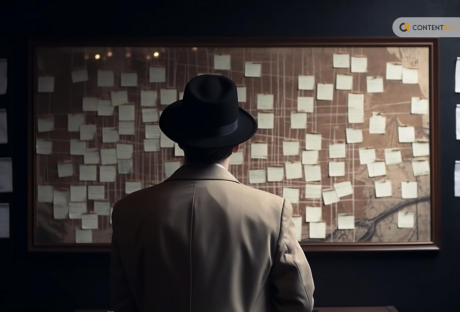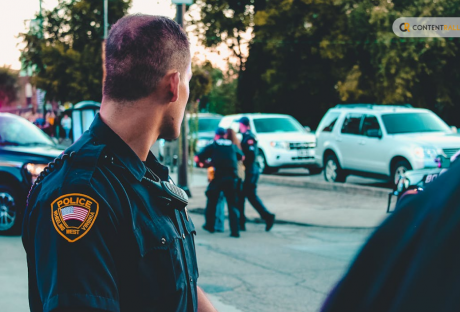If you plan to start a law enforcement career, you might likely get torn between a peace officer and a police officer! However, the decision might get easier once you start understanding what they do and their roles.
While both patrol at times, they are not the same. And yes, even if both carry guns (licensed, obviously!), their duties are quite different. And yes, these are some of the most dangerous jobs in the world.
If you are interested in learning the differences between these two officers’ roles and responsibilities, you have reached the right place! Therefore, keep reading this blog until the end to learn more…
Peace Officer vs Police Officer: Understanding Their Jobs in Society!
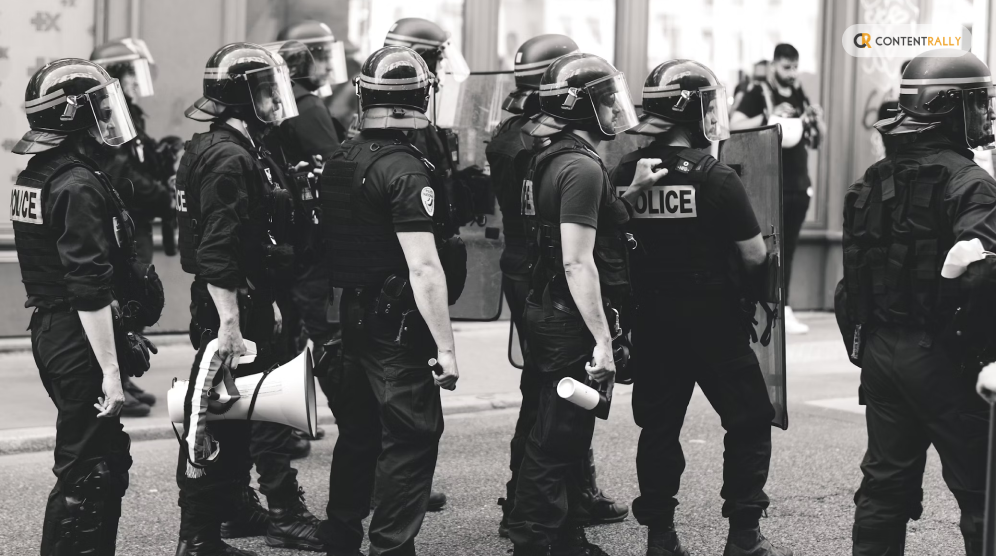
Before discussing the differences in terms of their roles, it is important to learn about who they are and what they do.
So, without further ado, let us get started!
What is a Peace Officer?
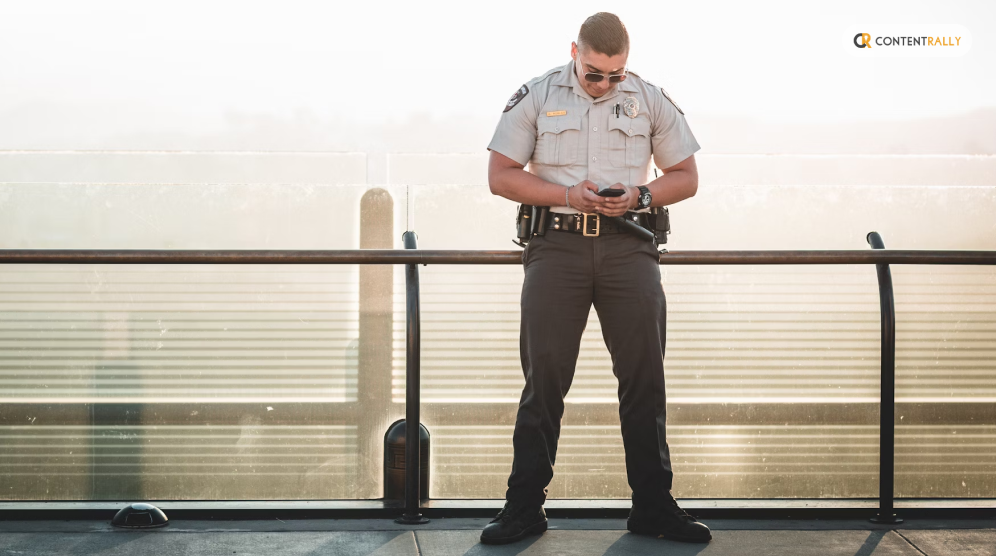
You might be confused by this term, right? There’s no need to! A peace officer is someone with the legal power to uphold the law and maintain peace. This covers a wide range of occupations, including law enforcement positions like sheriffs and state troopers.
Besides this, the peace officers are sworn in when they take an oath to perform their duties effectively and adhere to the law. Additionally, they frequently have guns on them and have the authority to make arrests.
Their primary objective is to ensure everyone abides by the law and contributes to everyone’s safety. They have a heavy-duty to keep people and property safe.
What is a Police Officer?
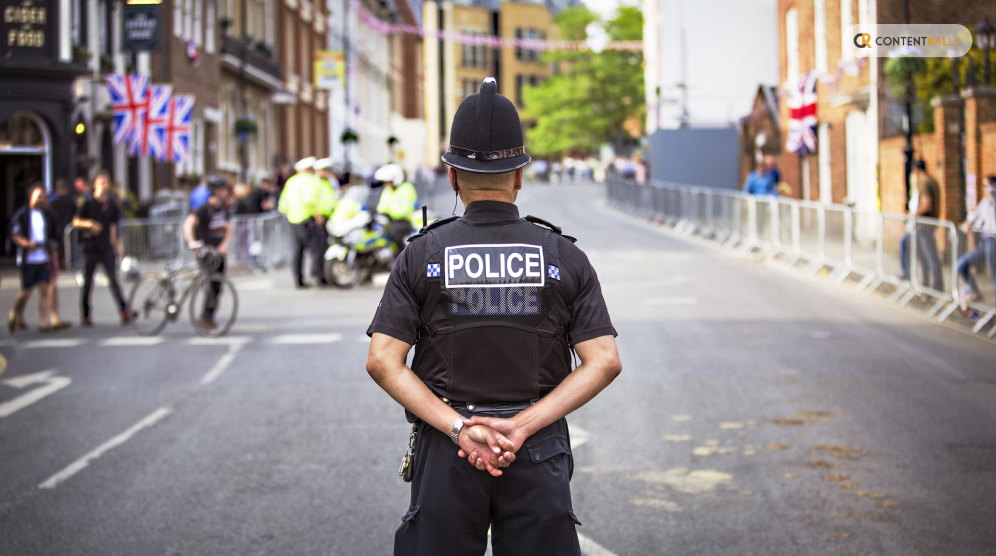
A member of the police force is referred to as an officer. Enforcing the law, ensuring everyone abides by the regulations, and keeping people safe are their duties.
They operate in certain regions, such as cities or neighborhoods. Officers on patrol for crimes assist in times of need and monitor the streets. They can make an arrest when someone violates the law, drives police cars, and wears a uniform. And yes, they make lots of money!
Police officers converse with members of the public to deter crime and find solutions to issues. They are vital because they work hard to guarantee everyone can live in a secure and tranquil environment.
Peace Officer vs Police Officer: Key Differences You Need to Know
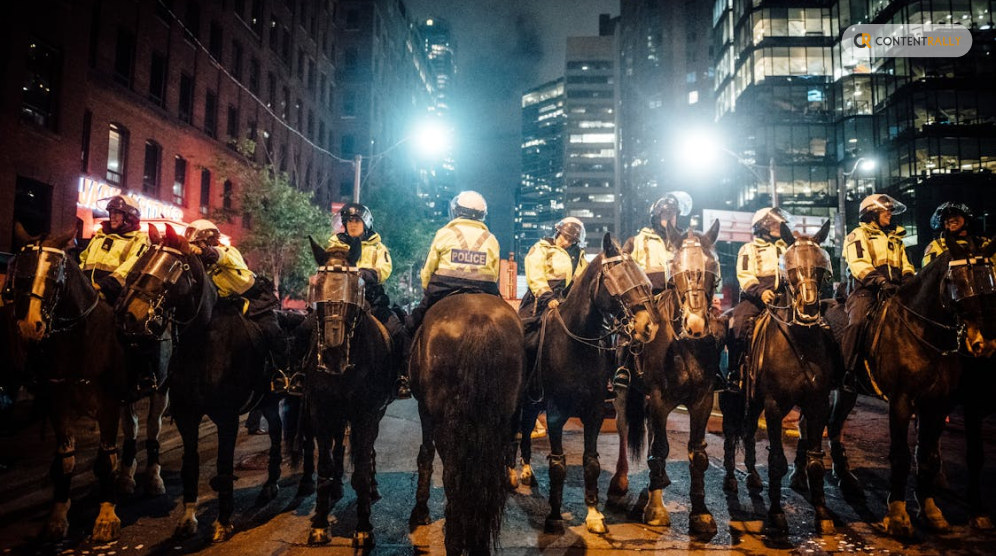
The main difference between a peace officer and a police officer lies in the scope of their authority and the areas they serve.
While all police officers are considered peace officers, not all are police officers.
Scope of Authority
The authority of peace officers is more expansive and can go beyond what is typically assigned to police personnel. Depending on their role, they may work for different law enforcement agencies and have varying tasks.
First, there is a significant distinction between the authority and responsibility held by peace officers and police officers. Due to their broad reach, peace officers can perform a variety of law enforcement duties.
They may have distinct responsibilities and work for different organizations. A county sheriff, for instance, has powers different from those of a state trooper assigned to highway patrol.
Police officers, on the other hand, are authorized to do more particular tasks. They typically work for the police department of a municipality or city.
Their primary responsibility is to maintain the safety of their community by patrolling, looking into crimes, and handling emergencies. At work, they concentrate on upholding the law.
Therefore, the primary distinction is that police officers often have a specific duty in a certain area, but peace officers can have multiple roles in various locations. Both are crucial in upholding the law, although they do so in various contexts and methods.
Jurisdiction
As you know, “jurisdiction” refers to the domain in which an individual possesses the authority to decide and act. It all comes down to where peace officers and police personnel can carry out law enforcement.
A police officer’s jurisdiction is usually restricted to the town or city where they work. They focus on certain areas and ensure that the law is followed there.
If you notice a police cruiser or officer wandering around, it’s likely that they are patrolling their area. Peace officers’ jurisdiction is more expansive. They may operate in several regions or throughout the entire state.
For instance, one sort of peace officer who can enforce the law in state parks and wildlife areas, which can be rather large areas, is the game warden.
To put it briefly, jurisdiction refers to the “where”— the areas where these authorities are free to exercise their power.
Law officers have a specific “where,” such as municipal limits. The “where” for peace officers is broader and can encompass various locations and law enforcement roles.
It is significant since it designates the individuals responsible for maintaining order in various locations.
Peace Officer vs Police Officer: Roles and Responsibility You Need to Know
Now that you know their scope of authority or jurisdiction, it is time to learn about their roles and responsibilities. One thing you must know is that these are not the low stress jobs.
Let us take a step, one at a time:
Peace Officers
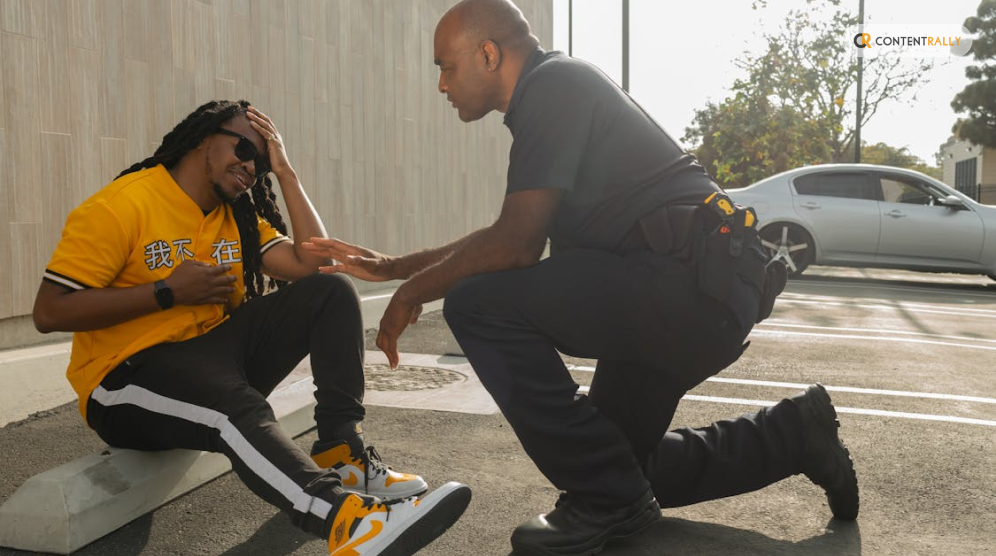
Peace officers are vital members of the legal community who perform a variety of duties. They may be state troopers, sheriffs, game wardens, court officials, or other officers.
Although the duties of each type of peace officer vary, they are all concerned with maintaining law and order.
In a county, the sheriff is in charge of law enforcement. They are in charge of the county police department and the local jail. The county’s residents choose the sheriff, and deputies assist the sheriff in carrying out his duties.
State troopers, often known as highway patrol officers, enforce the law on state-owned roadways. They contribute to road safety by apprehending speeders and reckless drivers. They can work anywhere in the state and help out in big emergencies.
Game wardens are peace officers who protect wildlife. They ensure that people don’t harm nature and follow hunting and fishing rules. They also monitor parks and natural areas to protect plants and animals.
Court officials work in courtrooms. They help with court papers, keep judges safe, ensure the court is secure, and ensure everyone follows court rules.
Any of these peace officers can arrest someone if needed. Their uniform shows they are responsible for enforcing the law. They often have guns, handcuffs, and radios to help them do their job.
Peace officers are ready to deal with many situations, like helping lost people or catching criminals. They need to know the law well and be good at talking to people fairly and kindly.
| Peace officers can include:Sheriffs: Oversee county law enforcement.State Troopers: Patrol state highways and provide statewide law enforcement.Game Wardens: Enforce hunting, fishing, and wildlife conservation laws.Court Officers: Maintain security within courtrooms. |
Police Officers
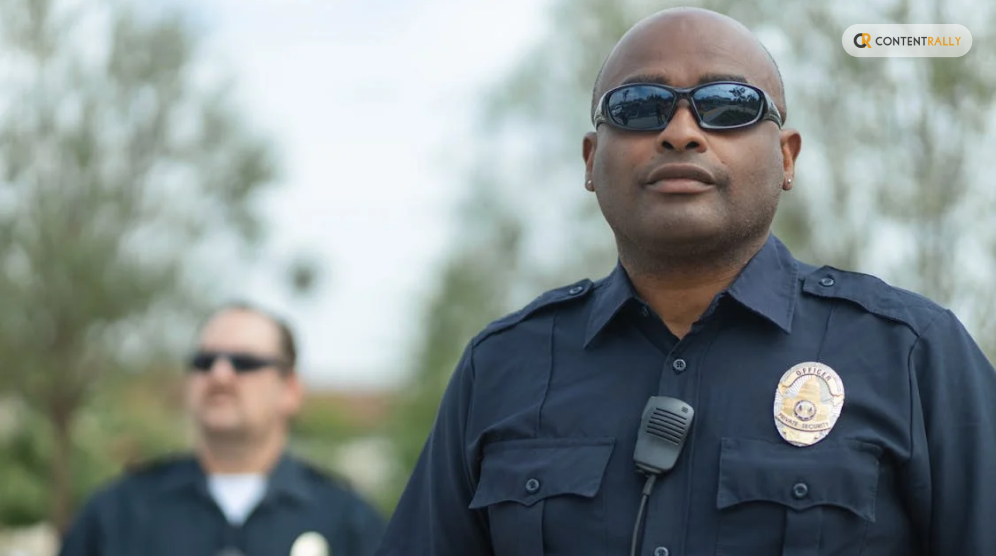
Police officers are the ones you frequently see driving patrol cars, responding to various problems in your community, and wearing uniforms.
They are a particular class of peace officers from the police force. Their primary responsibility is to ensure everyone’s safety and the community’s rules are obeyed.
There is patrolling, for instance. Officers of the law spend a great deal of time walking or driving through the area under their jurisdiction. This enables them to monitor the situation and be ready to assist anyone who requests it.
Investigating crimes is also a major task for which the police are responsible. They investigate crimes as they happen, attempting to ascertain what occurred and who was responsible by gathering evidence and speaking with witnesses.
Additionally, when police officers establish a rapport with the community’s citizens, this is known as community policing. They converse with the inhabitants, pay attention to their worries, and collaborate to find solutions. This improves the neighborhood’s quality of life by reducing crime.
And yes, how can we forget emergency response? Police officers are among the first to arrive and assist in an emergency, such as a vehicle accident or a natural disaster.
In addition to these responsibilities, they frequently manage traffic, help missing children find their homes, and conduct safety awareness training. It is safe to say that every day is different, so they must be ready for everything.
Law enforcement officials receive training on handling challenging circumstances and treating everyone fairly and with dignity.
They need to be knowledgeable about the law and how to enforce it, but they also need to be highly skilled in interpersonal interactions and sensitive to others’ concerns.
| Police officers are tasked with:Patrolling: Monitor areas to prevent and detect crime.Investigating: Solve crimes and gather evidence.Community Policing: Engage with the community to build trust and prevent crime.Emergency Response: Provide immediate assistance during emergencies. |
Peace Officer vs Police Officer: Training and Qualifications
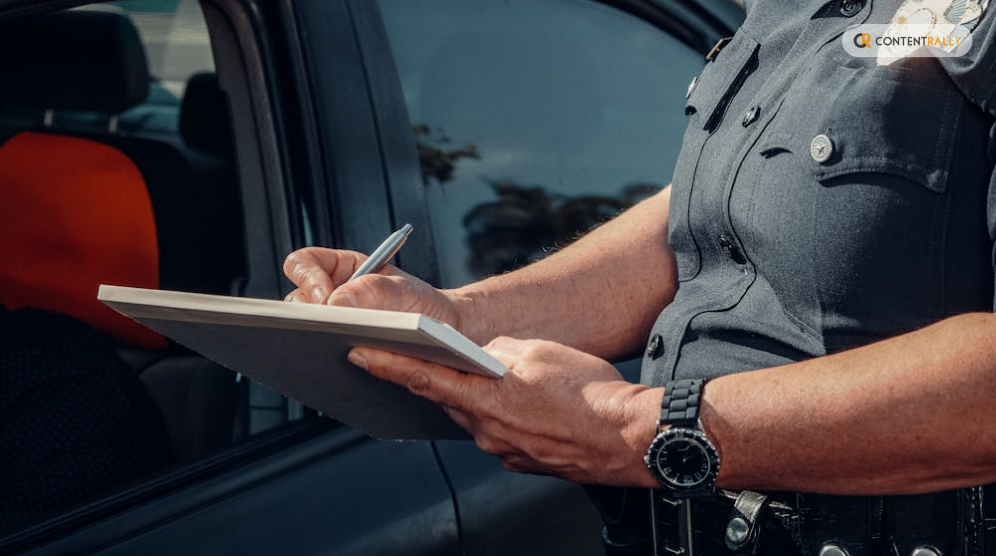
Both peace officers and police officers need to finish a rigorous training program. Through this teaching, they learn specialized procedures, applicable laws, and how to maintain physical health.
However, the specific expertise that law enforcement agencies need to obtain may vary depending on the state. To be a peace or police officer, one must meet certain qualifications and finish specialized training.
This will enable them to do their jobs well and guarantee everyone’s safety.
For Peace Officers

An individual must ensure no history of significant offenses before being eligible to work as a peace officer.
They accomplish this by proving their excellent conduct and passing a background investigation. They ought to be at least eighteen and have completed high school or something similar.
Individuals must also pass a physical examination to prove they are qualified for the position.
In states such as California, they must demonstrate their ability to make wise decisions and dependability. They learn how to manage crises, make arrests, and maintain thorough records of everything that occurs while they’re on the job during their training.
For Police Officers:
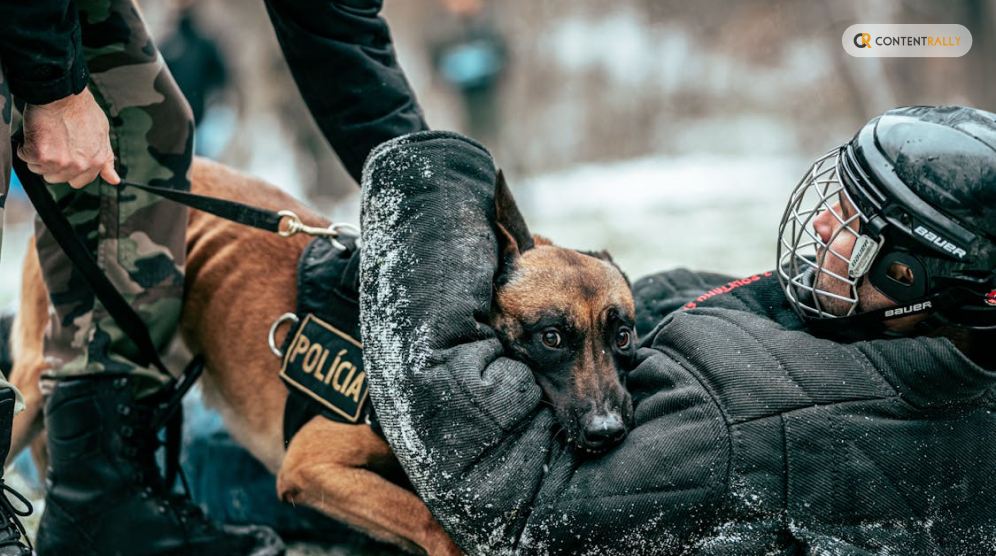
The typical requirement to become a police officer is to graduate from high school or a comparable program. In addition, you must be of legal age and free of criminal history.
Once you’ve demonstrated the necessary knowledge and abilities, you take tests. If you pass, you enroll in a police academy to gain comprehensive knowledge of being a police officer.
This covers how to look into crimes, handle various circumstances, and defend the rights of individuals.
Even once they begin their careers, police officers must continue their education and training. This keeps people informed about new legislation and safety measures for the neighborhood.
Being a police officer comes with a lot of duty. The training ensures their readiness to assist the people they serve. Police officers must possess the abilities, know-how, and moral fiber necessary to carry out their duties effectively and win the public’s trust.
(Psst.. if you want to drop out of it, you can still become a detective!)
Wrapping It Up!
Although they have different functions and responsibilities, people often used the terms “peace officer” and “police officer” interchangeably in law enforcement. If you were looking for information on peace officers vs. police officers, I hope this blog was useful.
Do not hesitate to contact me if you have any more questions. Scroll down until you reach the bottom of the page. Next, post your thoughts and recommendations in the space provided below.
Additional Reading:













